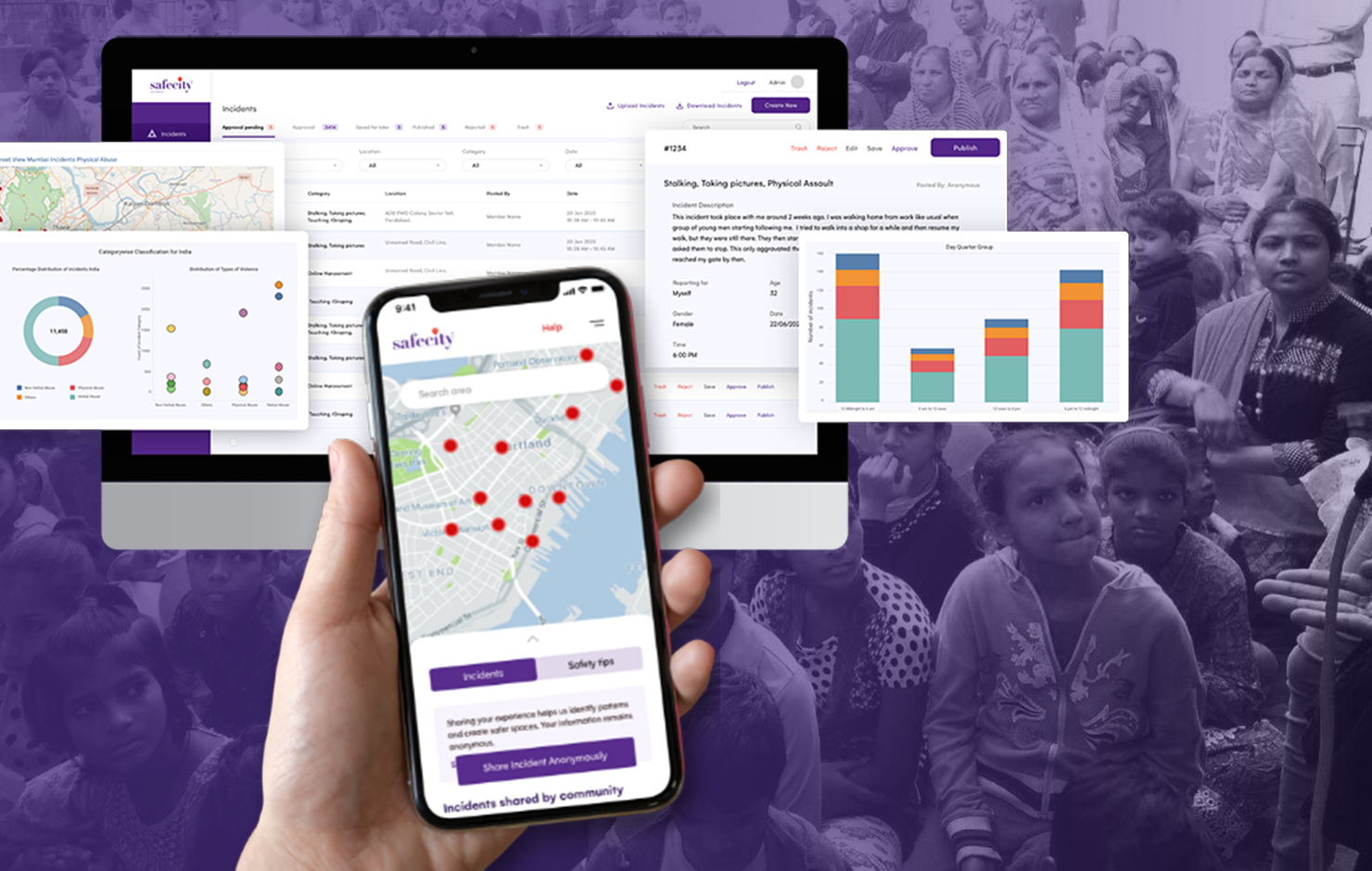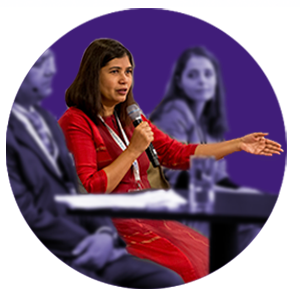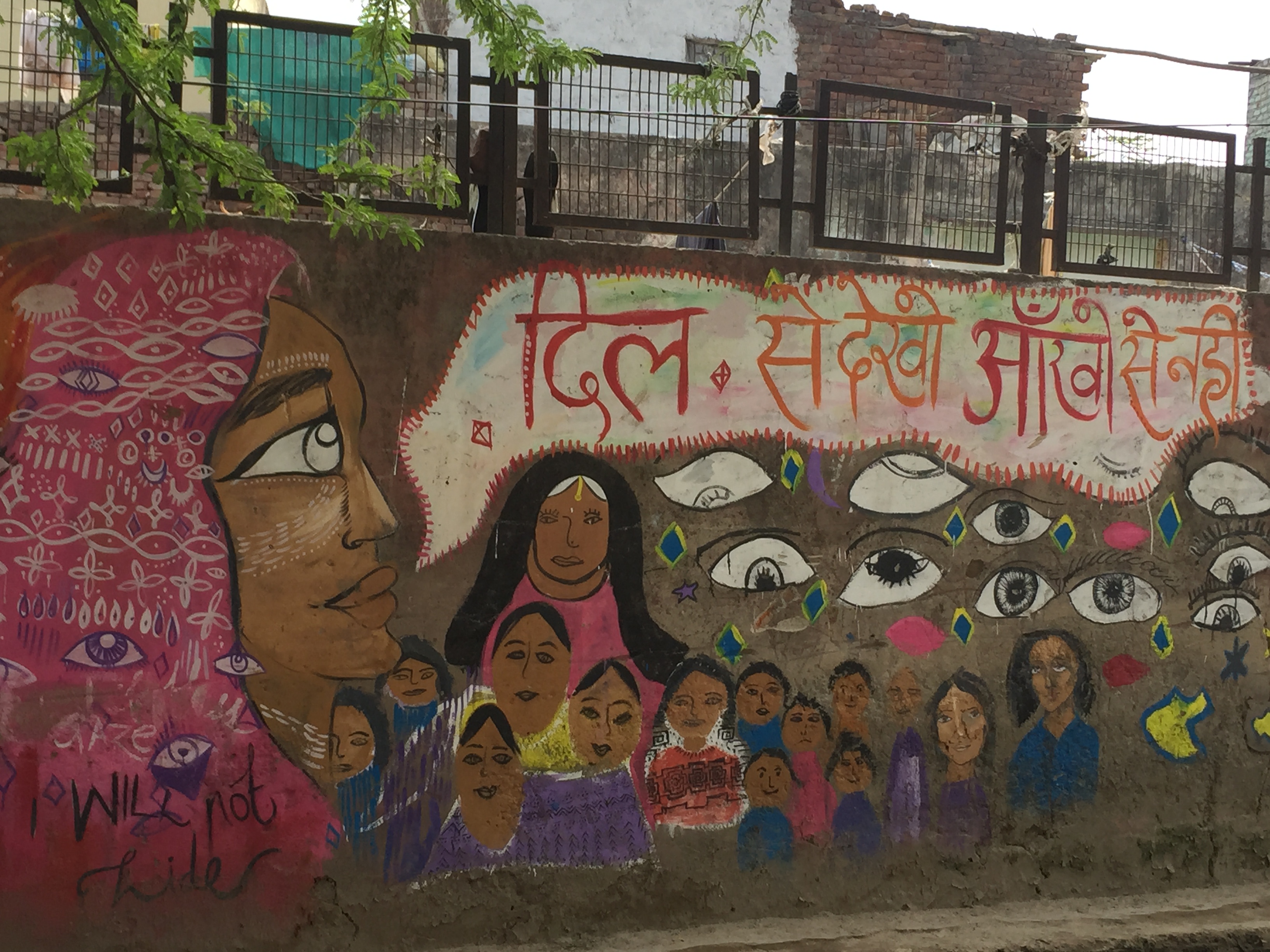

An app inspired by a horrific act of gender-based violence in India is now empowering women and girls around the world to make their communities safer. The World Justice Project spoke to Elsa Marie d’Silva, founder and CEO of the Red Dot Foundation about the Safecity app, which won the World Justice Challenge 2022 in the Equal Rights and Non-Discrimination category.
WJP: To start off, can you tell us a little bit about what Safecity is and what it does?

Safecity is a crowdsourcing platform where we encourage people to anonymously share their personal stories of sexual and gender-based violence.
And then, these stories are documented and visualized on a map so that we can see local-based patterns and trends, and that data is available to anyone to use globally to make their community safer.
The issue that we work on, gender-based violence, is so pervasive. It’s a global issue. And yet there is silence around it because there’s a lack of data.
WJP: What inspired the creation of the Safecity app?
In December 2012, we experienced a horrific incident in India where a young woman was gang raped on a bus in Delhi, and she was left to die in the streets.
And that incident provoked a lot of discussion on the topic of sexual and gender-based violence. It triggered many emotional memories for me as well as friends of mine. And for the first time, I realized we openly started talking about our own experiences. What I realized is that pretty much all of my friends had a story to share, and yet none of us had made any official complaints or even talked to each other about it.
And that made me realize that there is a data gap that exists because the issue is so pervasive that we needed to do something.
WJP: How does gathering data impact the prevalence of sexual and gender-based violence in communities that you serve?
What we’ve noticed is that if you have a concentrated data set of a hundred or 500 stories, you will start to see patterns and trends popping up and can use this information in many different ways.
The first is to help people understand the scope of the problem, the various forms of sexual and gender-based violence that occur and how often.
The second is you’re not alone. We often think we are alone in this issue and that it’s our fault.
And then third, you can ask your community to help you. Now you have access to the data which you can use to say, there is a problem out here that’s happening on a regular basis. What is it that we as a community wish to do?

WJP: Can you give an example of a location that’s come up on the Safecity app and what members of the community have done in response?
In several parts of India, people don’t have a toilet within their own home. If the public toilet in their neighborhood is unsafe or unclean, then that makes them vulnerable, not just in terms of their physical health, but also mental health and well-being.
In many places, toilets have popped up as a hotspot on the crowd map. We saw a bunch of incidents as well where women were going and using the bushes as a toilet. Another example is outside a toilet complex in Delhi where the lighting wasn’t working. Some men had also placed a couch in front of the toilet complex and they would sit there and intimidate the women.
When this complex popped up in our data set, we asked members of the community what they wanted to do. So, they went to civic authorities and asked them to fix the broken infrastructure.
Second, they decided to paint the toilet complex with their feelings, but they also decided to put the sections of the law about commenting, staring, and taking pictures without consent a crime.
Third—they invited the men to come and hear their stories and look at the data. The dialogue helped the men realize that what they were doing was inappropriate and many of them then joined the movement to educate their peers.
WJP: What does the rule of law mean to you and how does it relate to the freedoms women have in India?
The rule of law sets a guideline on how society needs to behave. Under our constitution in India, women are guaranteed equality. However, in reality, they’re not allowed to practice that equality. For example, if a space is unsafe for her because of her gender, how is it equal? And if she’s not allowed to access public spaces or public transport, that limits her economic opportunities and her ability to thrive. I feel when we talk about the rule of law, we really also have to ask is everyone included in it?
WJP: How does it feel to be connected to a broader movement through the work you’ve done with the Safecity app?
The data from Safecity helps me understand what might happen in a particular location, so I’m better prepared with my responses, should that incident occur. I’m grateful for all those people who have shared their stories—I feel it’s very liberating to be part of a movement where we have each other’s back, where we are looking for solutions as a community, and that I don’t have to feel alone as a victim.
I think right now the world is full of so much uncertainty, and we are constantly hearing bad news. When I was looking at the range of solutions at the World Justice Challenge, I was amazed by what people have put forward, and that gives me hope, because we really need hope.
WJP: What gives you the most hope when it comes to your own work?
I hear stories of survivors every day and it breaks my heart that people have to go through these experiences. I imagine a world where one doesn’t have to worry about walking down a street or going to a new city or place. The world is so beautiful—we want people to be able to travel and experience all the beauty around them, but a lot of people are afraid.
And so, when I hear about young people who’ve used our data, women in communities who have used our data to push for change, it makes me feel really happy because I know they’re on their path to success.
WJP: How has Safecity’s work progressed since you won the World Justice Challenge at the World Justice Forum in June?
Since June we have several formal Safecity chapters using the application. A Safecity chapter is led by an organization who wants to implement the Safecity application in their programming. We recently launched an Arabic version for our Jordanian partner Generations For Peace and our Romanian partner, who is working with Ukrainian refugees, has requested a Ukrainian language update, which is in the pipeline.
To date, more than 50,000 people have shared their stories through Safecity, and with partners in 17 countries, we’re showing women worldwide that they are not alone.
Safecity will be presenting at the UN Commission on the Status of Women’s International Women’s Day event. To attend the in-person event in New York City, register on the CSW’s forum, go to March 13 and add Safecity’s event to your agenda.






